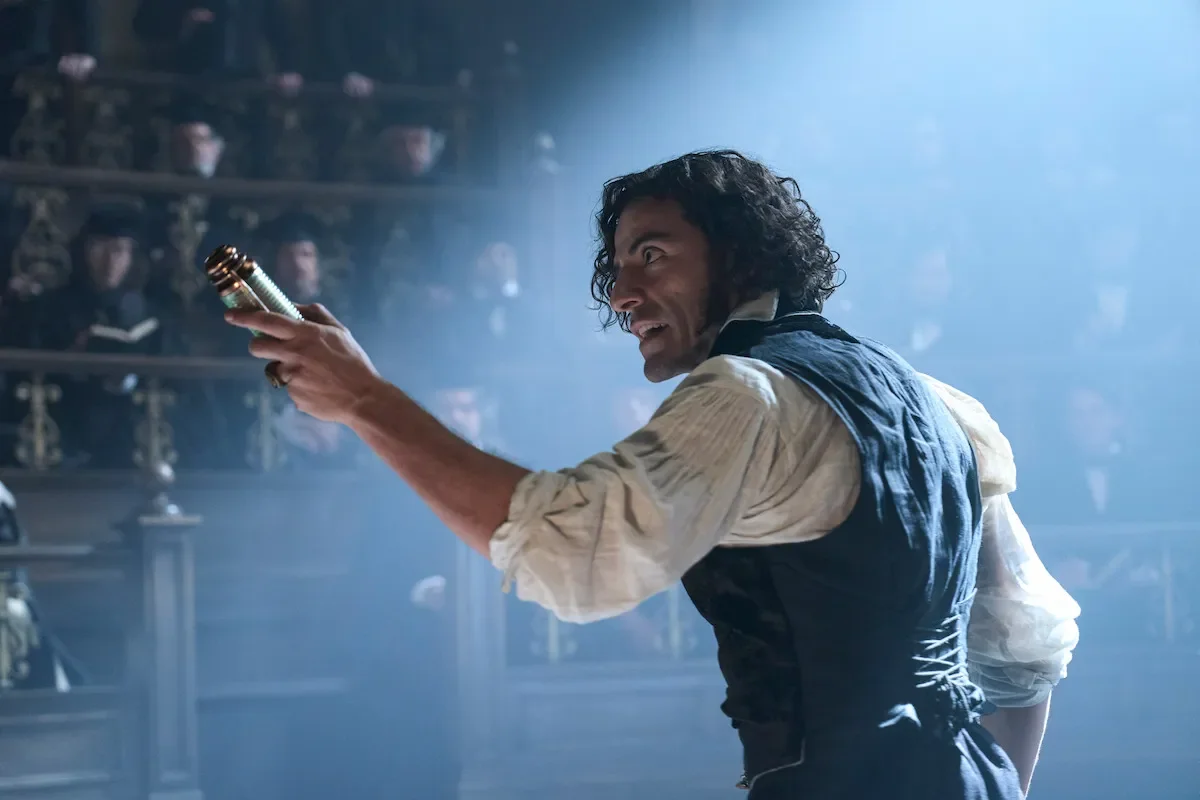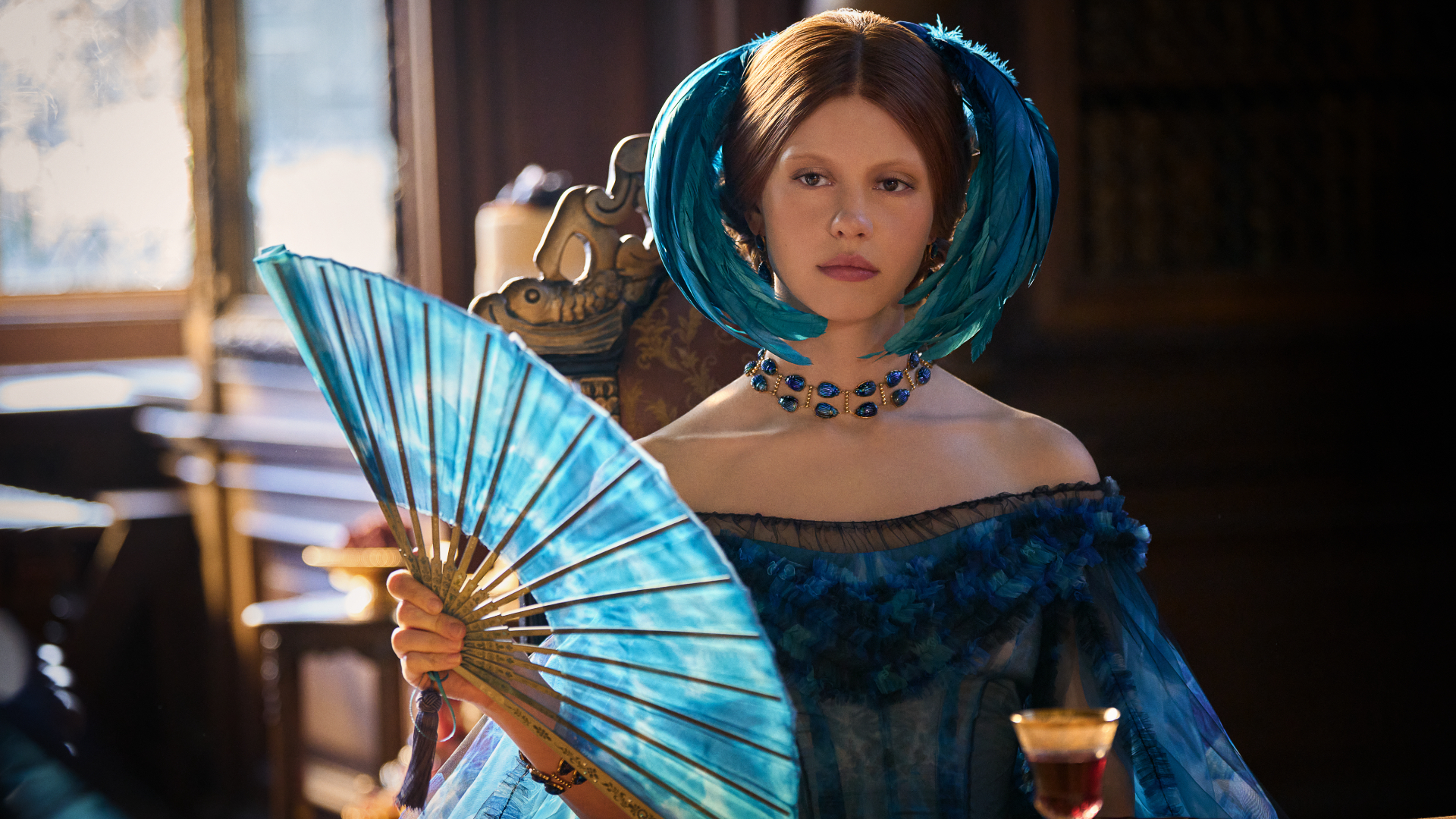‘Frankenstein’ Review: Guillermo del Toro’s Passion Breaks Through a Bloated, Overstuffed Feature
Courtesy of Netflix.
SPOILER FREE REVIEW
Synopsis: A brilliant but egotistical scientist brings a monstrous creature to life in a daring experiment that ultimately leads to the undoing of both the creator and his tragic creation.
Guillermo del Toro has once again turned to Gothic literature for inspiration, this time offering his take on Mary Shelley’s ‘Frankenstein.’ Known for his distinctive visual style, the filmmaker presents the story as a grand, almost operatic melodrama. Oscar Isaac takes on the role of Victor Frankenstein, the ambitious anatomist determined to defy nature, while Jacob Elordi plays the creature—rendered not as the classic bolt-necked figure but as a strikingly human presence, scars and all. In fact, Elordi’s portrayal may be the most conventionally attractive the monster has ever appeared on screen, even when compared with earlier incarnations by Boris Karloff, Robert De Niro, and others.
At its core, the film plays less like a horror story and more like an intense relationship drama between creator and creation. Both characters speak with polished British accents, Elordi’s voice carrying echoes of John Hurt in The Elephant Man. Del Toro fills the screen with ornate, richly detailed images that resemble illuminated pages from a Victorian volume. This meticulous beauty gives the film a sense of reverence for Shelley’s work, though it sometimes undercuts the raw energy that true horror demands. Unlike Yorgos Lanthimos’s provocative ‘Poor Things,’ Del Toro avoids pushing into uncomfortable or transgressive territory.
One of the director’s most striking creative choices is to shift, midway through, into the creature’s perspective. After escaping ‘Frankenstein’’s laboratory, the monster begins narrating his own story. While the conceit borders on absurd, it provides the film with a sudden burst of vitality—like the jolt of electricity that animates the creature himself.
Courtesy of Netflix.
The backstory adds another layer: young Victor, tormented by his domineering father (Charles Dance), grows into a brilliant but arrogant physician in Edinburgh, scandalizing the medical community with his heretical theories about reanimation. His ambitions attract the financial support of Harlander, a wealthy industrialist played with sly menace by Christoph Waltz, whose casual promise of a future “favor” suggests hidden agendas. Meanwhile, Victor’s entanglement with his brother’s fiancée, Elizabeth (Mia Goth), adds a strand of doomed romantic tension.
The performances as a whole anchor Del Toro’s ornate vision. Oscar Isaac embodies Victor Frankenstein with a combustible mix of arrogance and vulnerability, his voice carrying the fervor of a prophet and the brittleness of a man forever haunted by his father’s cruelty. His Frankenstein is not merely a scientist but a zealot for knowledge, consumed by an almost spiritual hunger to master life and death.
Jacob Elordi, by contrast, plays the creature with aching restraint. Beneath the stitched flesh and haunted eyes lies a childlike wonder, quickly curdled into rage by rejection. His physical presence—lithe yet imposing—suggests both beauty and menace, making his portrayal one of the most human in the long lineage of cinematic monsters.
Courtesy of Netflix.
Goth’s role, while severely underutilized, provides some of the film’s most refreshing moments. In one standout scene, she confesses her simmering anger about Victor—unaware that he is eavesdropping from the priest’s side of the confessional booth. The moment crackles with playfulness, but Del Toro moves past it quickly, leaving viewers wishing for more of her presence.
Visually, ‘Frankenstein’ is nothing short of a painter’s canvas in motion. Cinematographer Dan Laustsen cloaks the film in a chiaroscuro glow, where candlelight trembles across stone walls and shadows seem to breathe with a life of their own. The images carry the weight of cathedral glass—rich in color, meticulously detailed, but curiously still, as if encased in amber. Each composition feels calibrated to the millimeter: vast laboratories humming with arcane machinery, snowbound graveyards etched in icy blues, and parlors adorned with velvet and gilt. The effect is unmistakably Del Toro’s, marrying the meticulousness of Victorian illustration with the theatrical flourish of Gothic romance. Yet for all their beauty, the images sometimes threaten to suffocate the horror, their perfection holding the terror at arm’s length. It is cinema as spectacle—ravishing, operatic, and reverent, even when it resists the grotesque.
Courtesy of Netflix.
Ultimately, the film builds toward the inevitable question: who is the true monster, the man or the creature? Del Toro, in his stately and solemn retelling, seems to conclude that the answer is not so simple. In the end, ‘Frankenstein’ becomes less about horror than about the tragic, complicated bond between maker and made. The film may feel overstuffed for some, and not long enough to explore its full ideas for others. But one thing remains: Del Toro will always be a master at his craft.
Our score: ★★★★☆
(out of 5 stars)









